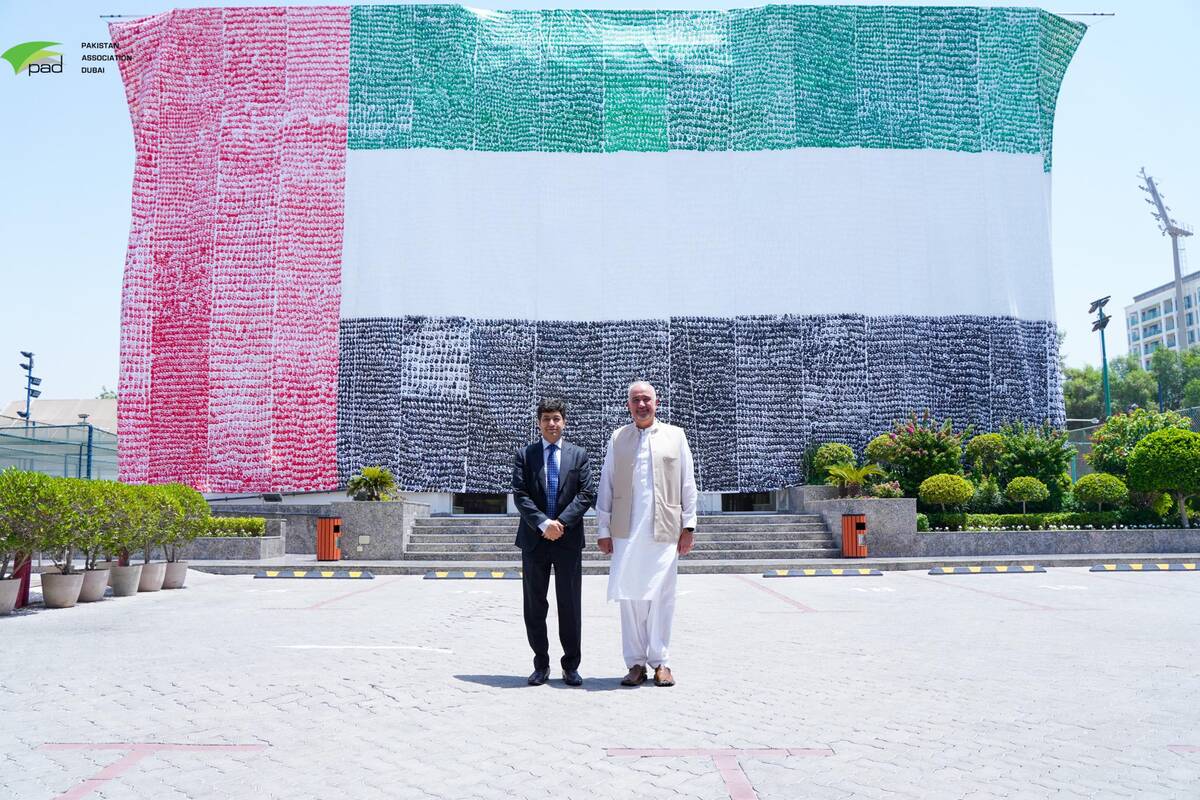ISLAMABAD: In January this year, Abdul Hameed, 45, wrapped up his warehouse business in Saudi Arabia and shifted back to his home town in Azad Kashmir, where he invested in real estate in the northern region as well as major cities of Pakistan, including Lahore and Islamabad, the federal capital.
Yet, despite being relatively affluent, the father of four set off on a perilous journey to Greece earlier this year, ultimately ending up on an ageing fishing vessel that flipped and capsized in the early hours of June 14 with around 750 illegal migrants onboard.
Only 104 people are known to have survived and 78 bodies of the dead were brought ashore in the immediate aftermath, Greek authorities have said, with most of the people on the boat hailing from Egypt, Syria and Pakistan.
Among the migrants were 28 men, including Hameed, from Banah Valley in district Kotli of Azad Kashmir, each paying over two million rupees (around $7,000) to local traffickers to arrange for travel to Greece. Only two of them have been identified as survivors, while five are confirmed dead and 21 are missing.
Twelve Pakistanis were among survivors of the boat capsize, the country's Ministry of Foreign Affairs said on Saturday, but it did not have numbers for how many Pakistanis died. Local and international media say the number of Pakistanis on the doomed vessel could be as high as 300.
“Our friends and relatives in Greece have confirmed to us that Abdul Hameed died in the shipwreck,” Hameed’s grieving father-in-law Muhammad Maqsood told Arab News in a phone interview on Monday from Banah.
“He was well-off … with investments in Saudi Arabia and Pakistan, but the dream for a better future for his children forced him to take this risky route to Europe.”
Maqsood said Hameed’s 24-year-old son initially planned to pay a travel agent to arrange the journey to Greece, but his father instead engaged a local human trafficker.
Unlike other people who choose to use traffickers, Hameed had a valid passport and other identity documents but wanted to avoid the difficulty of getting a visa for Europe. He flew out of Islamabad in the first week of March and reached Dubai, before traveling onwards to Egypt and then Libya.
Hameed then spent over a month in Libya before setting out to sea.
Maqsood said he last heard from his son-in-law on June 2.
“I'll be calling you from Greece next time,” Maqsood quoted Hameed as telling him in his last phone call.
The vessel is thought to have set off with passengers from the Libyan coastal city of Tobruk on June 10. Greek authorities say occupants of the vessel repeatedly refused offers of assistance, though international agencies, including Amnesty International, have called for greater clarity from Greece over the tragedy and whether enough was done to prevent it.
"WAITING FOR BODIES"
Banah Valley in Kashmir has a population of over two million people and according to local estimates, at least one member from each family lives and works in Europe and sends back remittances.
In the last six months, around 20 men of the valley have successfully reached Italy and Greece using traffickers.
“Everybody was confident that nothing bad would happen to their loved ones,” said Maqsood of the 28 men who set off for Greece. “It never occurred to us even in our wildest dreams that this tragedy could happen.”
Traffickers from the valley were considered “quite reliable,” and had a track record of successfully getting clients safely to their destinations in Europe, Hameed’s father-in-law said. In fact, when five men from the valley, including his son-in-law, were arrested last month in Libya in a police raid, it was the agents who got them released “through their personal efforts.”
“We were in touch with them [after their release], and they all were happy and satisfied while boarding the ship from Libya to Greece,” he said.
“The whole valley is in mourning,” Maqsood added. “We are now waiting for the bodies of our loved ones so we can bury them in our ancestral graveyards.”
Every year, thousands of young Pakistanis embark on dangerous journeys to flee economic hardship in the South Asian country, which is currently suffering record high inflation and an economic slowdown compounded by devastating floods last year.
But Wednesday’s shipwreck has resulted in a crackdown on human traffickers in the country, with police in Azad Kashmir last week arresting at least 12 people involved in sending local youths to Libya for the onward journey to Europe. The Pakistani government has ordered a high-level inquiry to investigate the human trafficking network thought to be involved in the latest tragedy, a statement from Prime Minister Shehbaz Sharif's office said.
The Federal Investigation Agency (FIA) said it had registered cases against four traffickers and arrested three in a laid night raid on Sunday.
“They are directly involved in trafficking of at least twenty men from Gujrat region who are now reported dead in the Greece shipwreck,” Sub-Inspector Irtaza Ansar with the FIA in Gujrat told Arab News.
“We have been conducting raids for more arrests and trying to break this illegal network of the human traffickers who have been playing with lives of the innocents,” Ansar added.
The Ministry of Interior said on Monday it had established a coordination cell to verify information of relatives of the passengers aboard the ill-fated boat and set up camp offices in Islamabad and Azad Kashmir.
The coordination cell, set up on Monday, will also assist families of the passengers to give DNA samples as per the requisite parameters provided by the Embassy of Pakistan in Greece and coordinate with the Punjab Forensic Science Agency to prepare DNA reports to send to Greece, a notification from the interior ministry said.

















